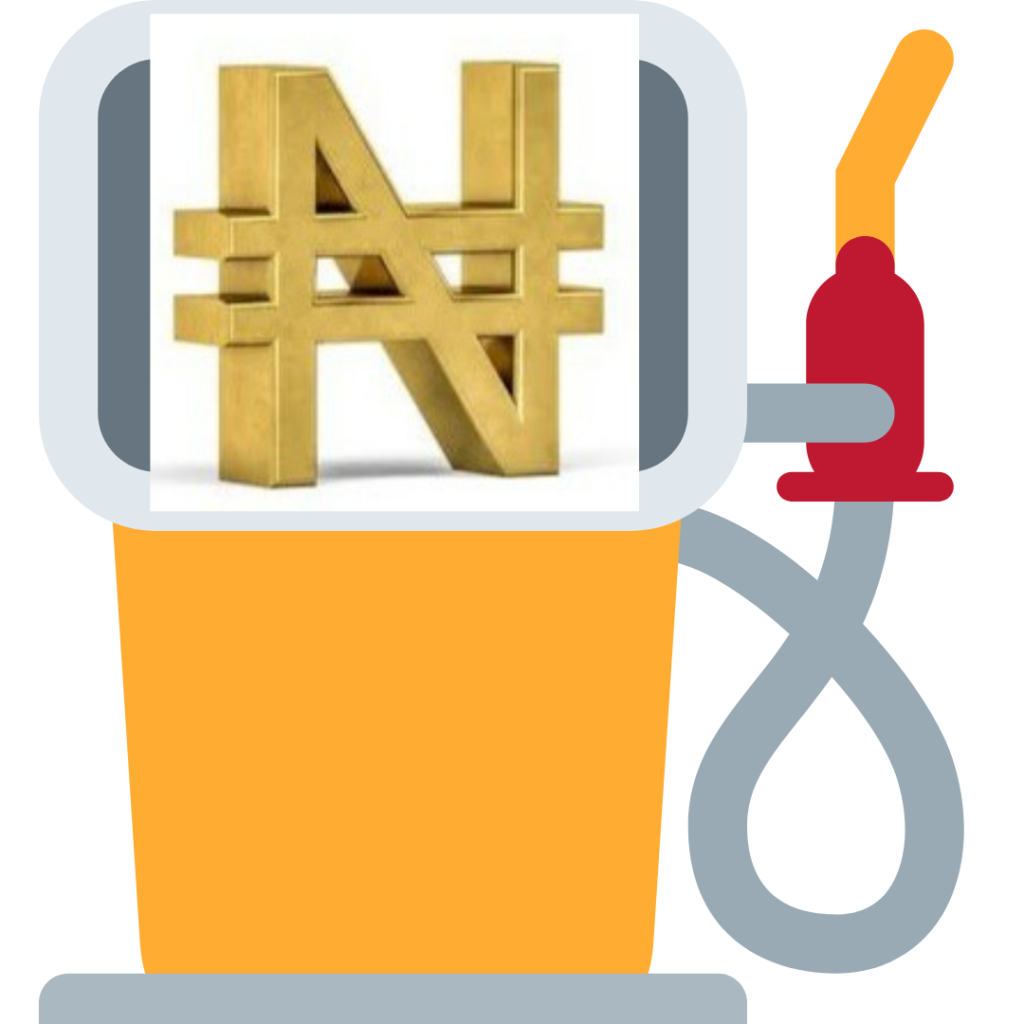In the good old days, Nigeria’s economy was blessed with oil palm plantations in the East, groundnut pyramids in the North and Cocoa plantations in the West. The discovery of crude oil in the country in commercial quantities brought about radical changes in the economy of the nation. Agriculture and all other sectors seem to have gone into oblivion thereby making the country to be totally dependent on oil for foreign exchange earnings. The result being that Nigeria becomes an oil-driven mono economy to the extent that when crude oil “coughs,” Nigeria will shiver.
To understand Nigeria’s oil sector, it’s important to look at it from the upstream and the downstream sectors. The upstream involves exploration. Government in partnership with international oil companies explore crude oil, get it, lift it and then sell. In the downstream sector, it basically involves the distribution of much of the refined products arising from crude oil.
But the challenge there is the disconnect between the upstream sector and the downstream sector – given that Nigeria at the moment, do not have the facility to refine these crude oils. So, what we have is enclave economy in the upstream sector where what happens there does not in any way reflect in the economy generally. So, we just lift the (crude) oil, we send them abroad for refining and whatever happens, Nigerians do not know, and then, the price immediately changes as a result of international factors; and of course, the internal factors which also include corruption by the big players in the downstream sector.
Now, the Nigerian National Petroleum Corporation (NNPC) – an agency of the government, is a regulator – regulating itself and all other players in the downstream oil sector; it is a big player in the sector in the sense that it participates in the business. It is the representative of the government that help in selling oil and then gets the revenue for the government and so, much of Nigeria’s revenue depends on it. The Petroleum Products Pricing Regulatory Agency (PPPRA) as well, is a federal government agency. It determines prices of petroleum products in the country. It also monitors and regulates the refining, supply and distribution of petroleum products.
The Brouhaha: the twists and turns
The PPPRA on Thursday, March 11, 2020 announced that for the month of March, a litre of petrol would sell between N209.61 and N212.61. It pegged the ex-depot price – the amount sold by fuel depot owners to marketers at N206.42, while the landing cost stands at N189.61 per litre. The NNPC – the sole importer of refined petrol, however debunked such figures. In a statement by one of its Group General Managers Kennie Obateru, he maintained that the Corporation was not contemplating any rise in the price of petrol in March. But very recently, Nigerians on Friday, March 12, 2020 woke up to the shocking news of N212.61 pump price of petrol per litre. There was immediate artificial scarcity and depot owners began to hoard petrol and some, raising their prices. This sparked outrage and it quickly impacted on the cost of goods and services making life unbearable for the people.
In a twist of reaction however, the Minister of state for Petroleum, Timipre Sylva apologized to Nigerians for the discomfort and inconveniences caused by the misinformation about the hike in fuel price. Quoting him, he said, “neither me nor the President, Muhammadu Buhari had approved the increase in the retail price of petrol to N212 per litre. Irrespective of the source of information, I want to assure you that it is completely false” It took no longer, the PPPRA later deleted the post earlier published on its website.
So, that was the brouhaha citizens found themselves and it reveals a case of ineffective and unreliable communication strategy by the government. There has not been very good synergy between the agencies of government – the PPPRA is saying something else, while the NNPC comes to debunk it. We see a disconnect in the activities of government. There is so much opacity in the oil pricing. Nothing is clear. Nigerians do not know what is happening in the oil sector and whether government will stick to its words going forward.
Admittedly, there is absolute secrecy suggesting that it is purposeful; since those of them in leadership positions are seemingly gaining. It also suggests that government is desperate for money. Nigeria has passed the borrowing limit going by the 2009 Fiscal Act – it means we are going beyond the threshold of what we should borrow. The external (plus internal) debt is mounting and the sources for it are also shrinking to the extent that we have borrowed so much from the sources we have and instead of coming up with innovative ways of reducing cost and increasing revenue, government appear to be thinking of the escapist route of manipulating the fuel prices – the very thin thread on which every Nigerian hangs.
How does the increases in fuel pump price affects the people? What are the implications?
First, we see that the government is extinguishing the middle class. The poor are becoming poorer, the rich getting richer. The government is therefore, deepening poverty across the country both at household levels and at the firms. And so, Nigerians working in self-employment or paid employment experience a reduction in their disposable income.
With the reduction in disposable income of individuals, not many companies will adjust the cost-of-living allowance for their workers and beyond that, even if the companies decide to have adjustment in the cost-of-living allowance, that will also impact on their bottom-line – bringing a continuous reversal of human development indices occasioned by the hike in the price of petrol.
Unfortunately, we have not seen government deliver on improving electricity it stipulated in the Economic Recovery and Growth Plan (ERGP). Electricity tariff has continued to increase and beyond the increment in tariff, Nigerians have also seen the continued inefficiency in the distribution of electricity. So, what it means is that most families depend on fuel generators to take care of certain household needs amidst the prevailing increase in petrol pricing.
One of the things that the government has also promised over time is to strengthen the medium and small-scale industries. Much of these industries make use of petrol either in production, transportation and so on. This mean that their expenses/daily running cost will continue to increase and will impact negatively on the profitability of these companies.
Nigeria hope to also see fear on the part of investors. This is because, the prevailing situation suggests instability – where the policies of government are not consistent arising from a disconnect between the different agencies and parastatals of government in the area of policy formulation and management. From the elitist and personalized nature of our government, we find that some cabals just meet together and then decide to influence what happens in the oil industry.
But then, can there be any way out of the brouhaha?
Going forward, what Nigeria need to do to address the situation is to finalize issues on the Petroleum Industry Bill (PIB) that is hanging there before the federal law makers. Then, we must be open and deepen transparency in the whole oil sector so that the masses can actually know the landing cost of petrol. In light of this, most government ministries, departments and agencies in the oil sector must begin to publish their accounts to aid public scrutiny.
We should also begin take deregulation of the downstream oil sector seriously. It means that there should be a free and open market so that people can import and also strengthen the issues of modular refineries. Small refineries can come up so that the country can refine crude oil locally and fuel can be available.
Since labour appear to be decimated, citizens’ groups must rise up to the occasion and begin to ask questions because the truth remains that the socio-economic crises that follow the increase in the pump-price of fuel does no one any good.
Now, pause and think, dear reader, of a starting line-up of attack of fuel price hike, unemployment and inflation for Nigeria at the moment; the outcome would be lethal, ferocious and devastating in similitude to the joint attack of Boko Haram, Herdsmen and Bandits. Did you just say, “God forbid?” Anyway, take the positions and recommendations this essay provides now. Who knows? May be God will forbid. This brouhaha must stop. Yes, it must!
About the writer

Oluka Emmanuel Chukwuemeka is a graduate of Electronic and Computer Engineering from the Nnamdi Azikiwe University, Awka, Anambra State. He is a research enthusiast and a passionate writer. He writes in from Enugu and can be reached via “write2oluka@gmail.com”






